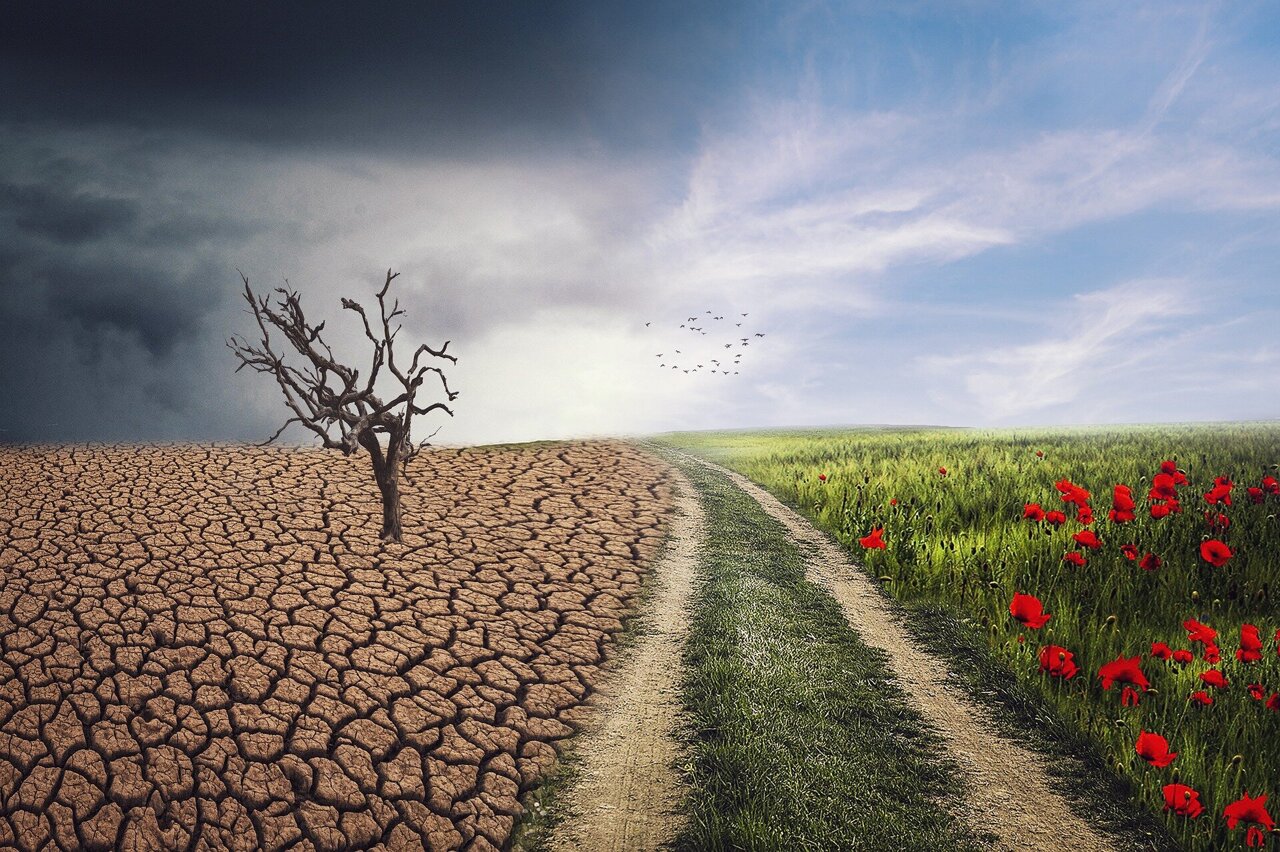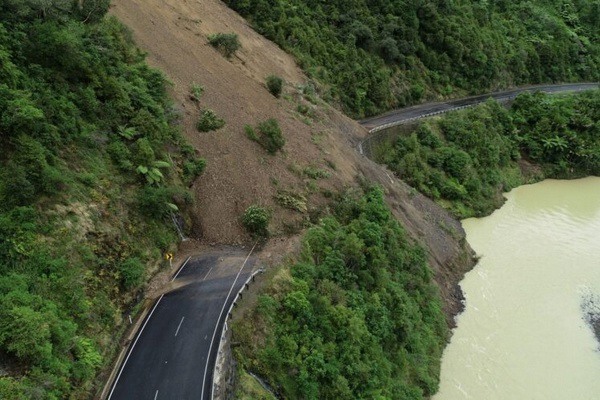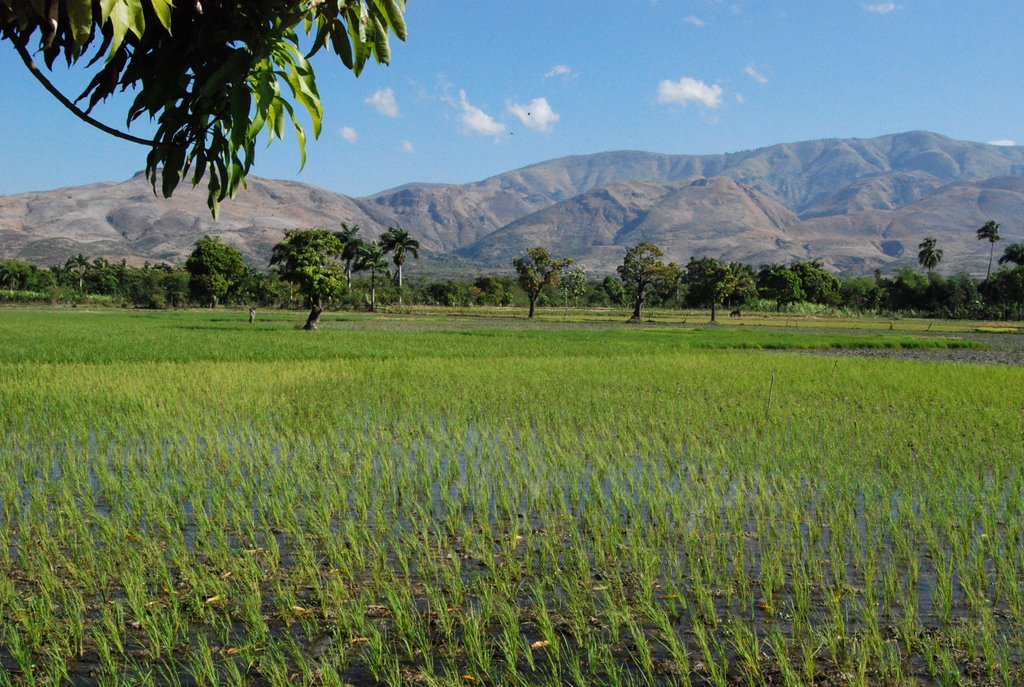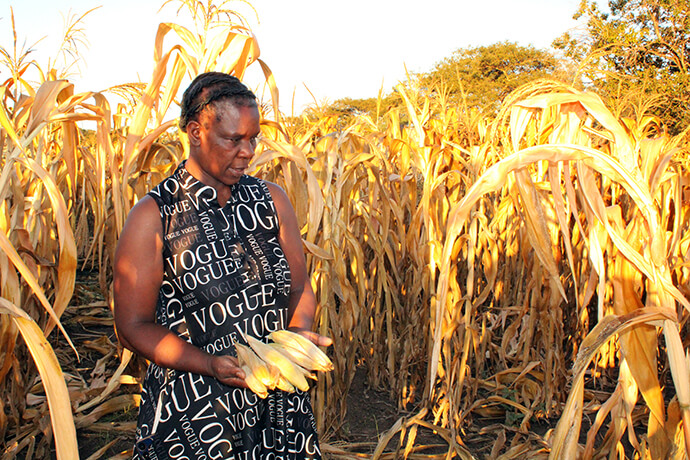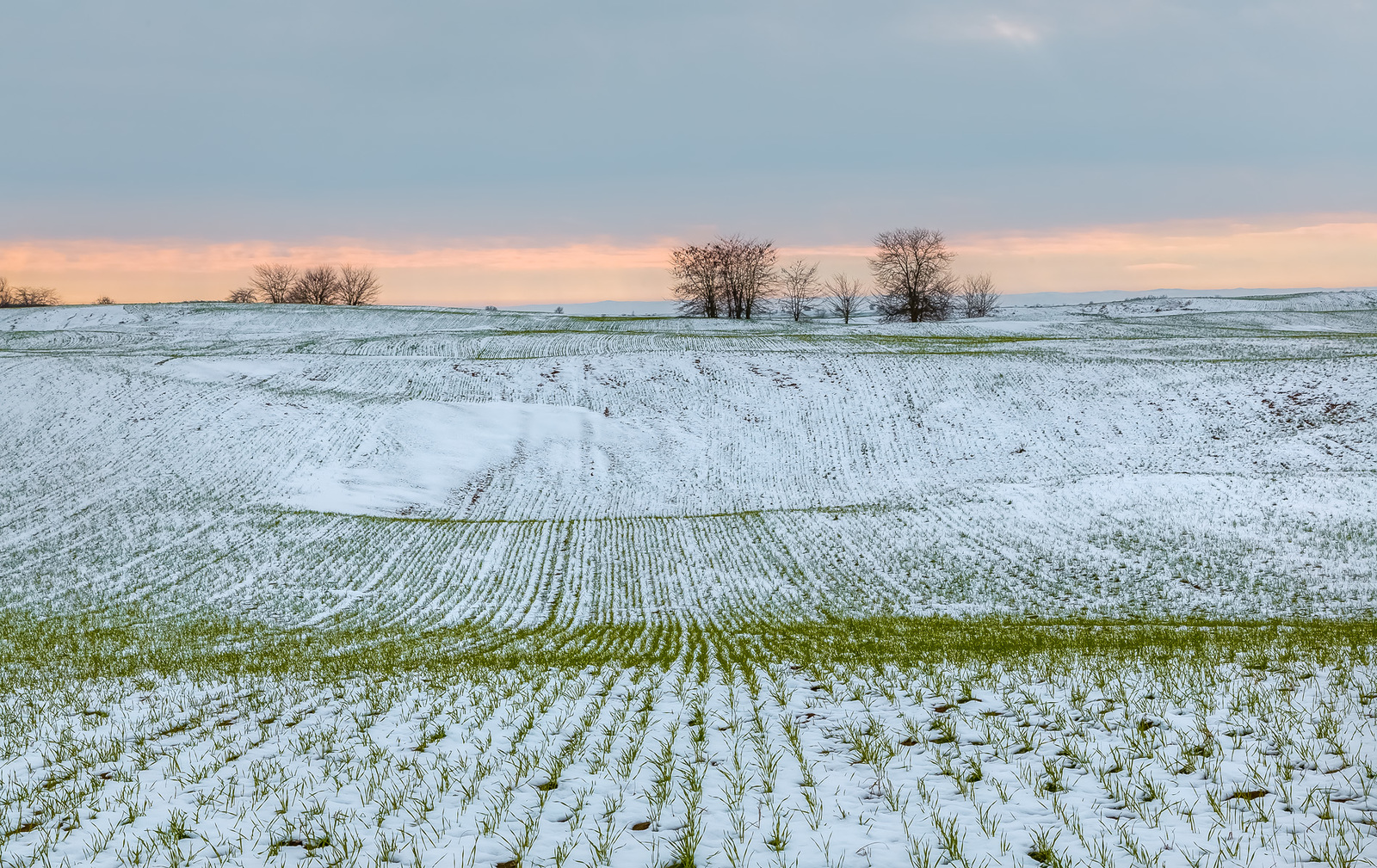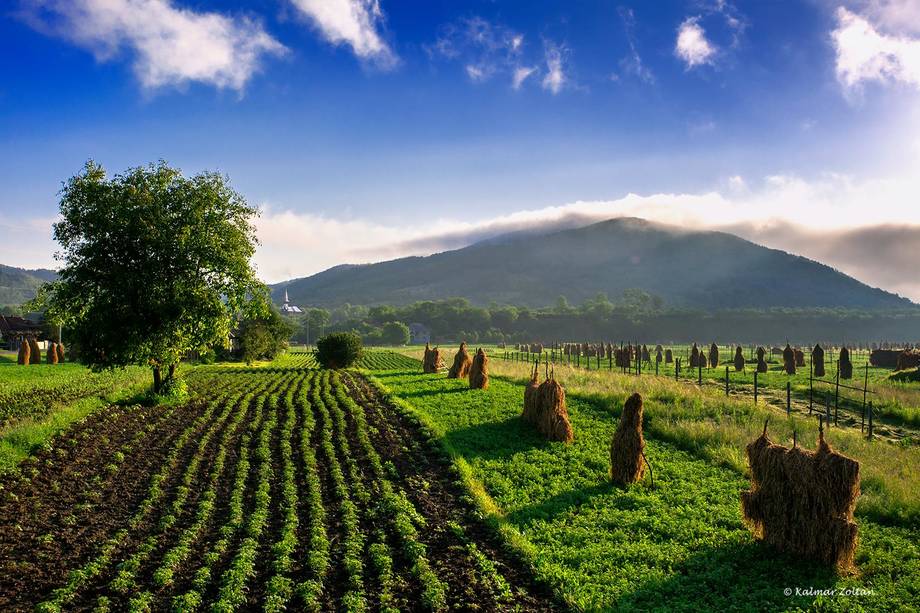Rising global temperatures have affected Zimbabwe heavily, with extreme events like veld fires, cyclone-induced heavy rainfall and droughts. This has led to farmers in the southern African country facing crop losses.
Rising annual temperatures have influenced the frequency and spread of veld fires — wildfires on veld grasslands — in the country.
Benedict Wandiona Chagumuka, a farmer in Zimbabwe, lost 12 of the 18 hectares of his ready-to-harvest wheat crop due to wind-induced veld fires October 10, 2022.
Powerful and unseasonal winds made the fire so ferocious that it rendered the fireguards on his farm useless.
Severe fires have added Chagumuka and two of his neighbours to the list of farmers who have suffered losses due to the same.
The fires destroyed at least 200 hectares of the winter wheat crop — with an estimated harvest of 1,000 tonnes — across the country over a week, according to the Zimbabwean government.
“Powerful winds fuelled the fires and made them uncontrollable,” said Misheck Chitokomere, an officer at Mashonaland Central Provincial Agricultural Extension Services.
We advise our farmers to construct fireguards, but the winds are powerful enough to crush the fireguards, the officer added.
Climate change and Zimbabwe
There is hope for successful outcomes as Zimbabwe’s climate negotiators head for the 27th Conference of Parties (COP27) to the United Nations Framework Convention on Climate Change.
The conference will be held in Sharma El-Sheikh, Egypt, from November 6-18.
“We hope that there will be consideration for loss and damage caused by climate change,” Zimbabwe’s environment minister Mangaliso Ndlovu told The Manica Post, a news portal.
The country is suffering huge losses due to climate change, he added.
Zimbabwe is yet to finalise its climate change law. The country passed a National Climate Policy in 2018.
“Zimbabwe is in the process of formulating a climate change bill. It will support climate change programmes at national and sub-national levels,” said Washington Zhakata, head of the country’s climate change department.
Zhakata revealed that there is currently no national climate change fund in place.
A Global Climate Risk Index survey by the non-profit Germanwatch ranked Zimbabwe among the top 20 countries most affected by the impacts of extreme weather events between 2000 and 2019.
The country’s daily minimum temperatures rose by approximately 2.6°C over the last century. And daily maximum temperatures increased by 2°C during the same period, according to Zimbabwe’s meteorological services department.
The number of cold days has decreased and hot days has increased. At the same time, rainfall and runoff decreased by 20 and 30 per cent, respectively.
The frequency of droughts has also increased to about one in three years from one per decade.
The effects of climate change are becoming more noticeable, according to Desmond Manatsa, faculty of science and engineering at the Bindura University of Science Education, Zimbabwe.
“Both minimum and maximum temperatures have increased since the early 1980s by about 1°C, hence reduced soil moisture through evapotranspiration,” Manatsa told Down To Earth.
There have also been changes in rainfall patterns, said the expert, who is also the president of the African Alliance for Disaster Risk Institutes. Increased rainfall extremes indicate more frequent floods and droughts.
Different parts of Zimbabwe experienced three to six insufficient rainfall seasons between 2014 and 2019, according to Famine Early Warning System Network southern Africa report.
Zimbabwe’s climate has changed dramatically since the 1980s — principally via a reduction in rainfall and an increase in average and maximum temperatures, according to the Zimbabwe National Geospatial and Space Agency.
This necessitates redrawing the country’s agro-ecological zones and the identification of a new zone that is so dry and unsuitable for cultivating even the best-adapted crops.
Cyclones are becoming more frequent in Zimbabwe. This year alone, the country experienced two of them — Cyclone Ana and Cyclone Batsirai.
Cyclone Ana left a trail of destruction and Cyclone Batsirai fortunately dissipated before making landfall. Zimbabwe was one of the three southern African countries that was ravaged by Cyclone Idai.
The cyclone affected more than 270,000 people in Zimbabwe. Some 341 people lost their lives and many others went missing. Over 17,000 families were left homeless.
Climate change has also contributed to Zimbabwe’s rising human-animal conflicts.
“Climate change means less water and grazing for wildlife, forcing them out of protected areas, thereby bringing them into conflict with humans,” conservation biologist Moreangels Mbizah told DTE.
Most climate change related losses in Zimbabwe are permanent because of a poor insurance culture. This has prompted experts to urge the government to undertake various regulatory initiatives towards a climate-resilient economy.
“There is an urgent need to develop a comprehensive, systematic and trans-disciplinary understanding of the legal and extra-legal aspects of climate change,” pointed out Nobert Musa Phiri, a lawyer.
African governments and civil society groups have demanded a better deal at COP27, especially regarding adaptation and mitigation finance to address loss and damage.
Most poor African countries suffer disproportionate losses and damages from the effects of climate change. This has prompted social justice activists to demand justice for survivors and victims of climate change-related disasters.
“A loss and damage funding mechanism should be established to support communities already affected,” said Frank Mpahlo, director of Green Governance Zimbabwe Trust, a non-profit.
Climate adaptation, mitigation
Zimbabwe has initiated several programmes to mitigate the loss and damage at home while joining other nations to get the best climate change deal at COP27.
“Zimbabwe’s responses have focused mainly on adaptation in agriculture, mitigation in the energy and transport industries and disaster risk reduction,” said Jeffery Gogo, a researcher and climate change journalist.
One of the most exciting developments is the launch of a satellite-based technology that monitors flood events, Gogo added.
The technology tracks water flow following a rainfall event using a satellite. It can accurately predict the likelihood of a flood within a day or so.
It has been deployed effectively since its inception in 2016, helping institutions such as the civil protection unit respond much faster to climate-related extreme events.
“Similar technologies can be adopted and applied by insurers and disaster risk practitioners to arrive at reliable estimates of loss and damage,” Gogo added.
Source - https://www.downtoearth.org.in


